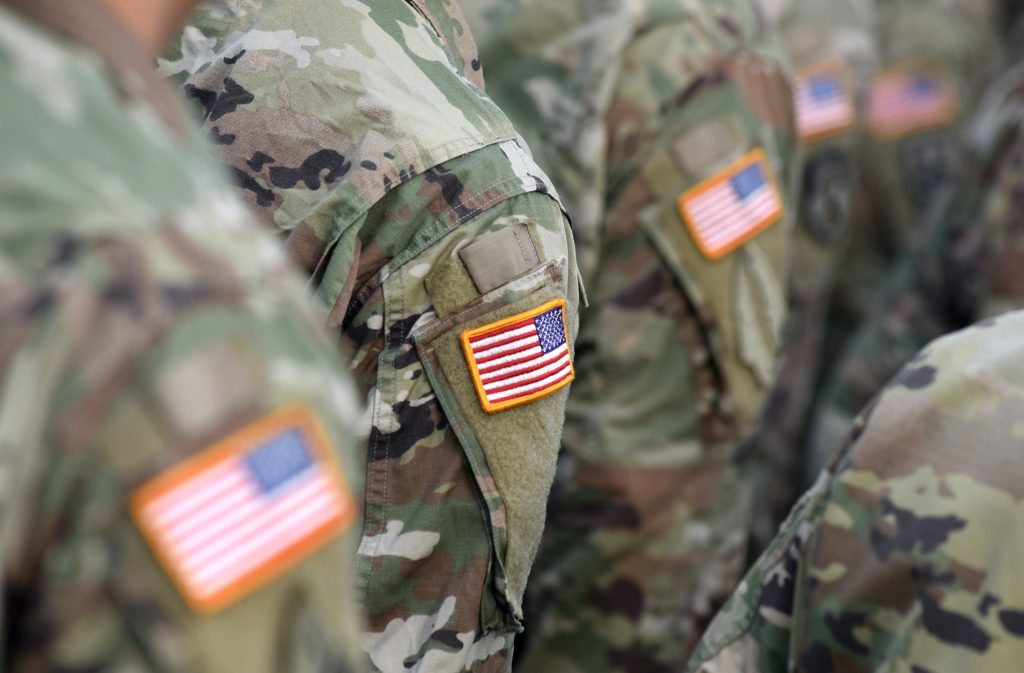SPECIALIZED CARE FOR VETERANS & FIRST RESPONDERS
What FORTITUDE Can Help With
A bad call or deployment is often traumatic. When dangerous encounters add up over a career, they can become overwhelming. It’s okay to seek help. Our FORTITUDE program can help veterans and first responders coping with:


Who is FORTITUDE for?
The FORTITUDE program at The Recovery Village Columbus welcomes veterans and anyone working in public safety (active or retired) who struggle with substance abuse and co-occurring mental health issues.
PROGRAM DETAILS
First responders and veterans can get specialized help for substance abuse and mental health issues in Columbus, Ohio.
Years of experience treating these professionals have made us industry experts on trauma-informed care for first responders and veterans. The FORTITUDE specialty track supports healing through:
Exclusive Group Therapy
Therapists who run these FORTITUDE-specific groups are specially trained in CPT for PTSD therapeutic interventions. CPT for PTSD groups are designed to process and normalize reactions to trauma and identify and replace dysfunctional thoughts.
EMDR treatment for eligible clients
EMDR helps people who have experienced trauma and all forms of negative events. This therapy alleviates mental pain and emotional recession, which can also lead to better outcomes for a substance use disorder.
A full continuum of care
The FORTITUDE track synergizes with medical detox, residential, partial hospitalization and intensive outpatient programs to tailor each patient’s care to their unique needs.
Experienced Staff
Therapists in the FORTITUDE program are licensed mental health professionals trained in clinical interventions for veterans and first responders. Our curriculum is informed by years of experience working with this community to understand how they think, feel and work.
Family Therapy
Weekly family therapy sessions address the roles family members play in addiction and PTSD and equip families with tools to support their loved one and find healing for themselves.
Vetted aftercare network
Our national database of therapists and aftercare resources are personally vetted so veterans and first responders can continue getting qualified, specialized care after treatment.
VIDEO
Getting Treatment Through the VA Community Care Network
Veterans can use their VA health insurance to receive high-quality, specialized addiction and co-occurring mental health treatment at our facility.
Are You A Veteran?
Talk to one of our Veteran Advocates. We can work with you to ensure your VA health care covers your stay with us.

FAQs About FORTITUDE
Which parts of the FORTITUDE program are specific to veterans and first responders?
Individual and family therapy sessions are tailored for FORTITUDE participants, as well as some group therapy sessions. Mealtimes, recreational therapies like yoga, free time and activities held outside the facility are co-mingled with civilians.
How long does the FORTITUDE program last?
The length of stay varies from client to client based on their recovery needs, level of treatment, progress and many other factors. However, at The Recovery Village Columbus, the average length of stay for most residential patients is 35 days.
Can I detox in the FORTITUDE program?
Yes, drug and alcohol detox is offered onsite at The Recovery Village Columbus and is the first step in recovery for most clients.
Can you enter FORTITUDE for mental health needs only?
Currently, the FORTITUDE program at The Recovery Village Columbus accepts clients for a substance use disorder and any co-occurring mental health conditions, but not for mental health needs alone.
Will I room with other first responders?
We make every effort possible to place FORTITUDE participants together. However, this cannot be guaranteed, per state regulations on level of care housing requirements. Each residential room has two beds.
Will my insurance cover the FORTITUDE program?
Many insurance companies cover some or all of substance abuse treatment costs, including treatment in the FORTITUDE program. Our Recovery Advocates can help you verify what’s covered in your insurance. Veterans may request a dedicated Veteran Advocate to help them navigate their VA health insurance.
Does the FORTITUDE program work with workers compensation claims?
It can. Our admissions department and outreach team have experience navigating over 100 different worker’s compensation cases for clients and look forward to the opportunity to help you navigate this process.
Questions? We are available 24/7. Call 614-362-1686 Now.
Ready to start your recovery?
Let us know you’re a veteran or first responder when you call. We’ll get you specialized support to meet your needs.







